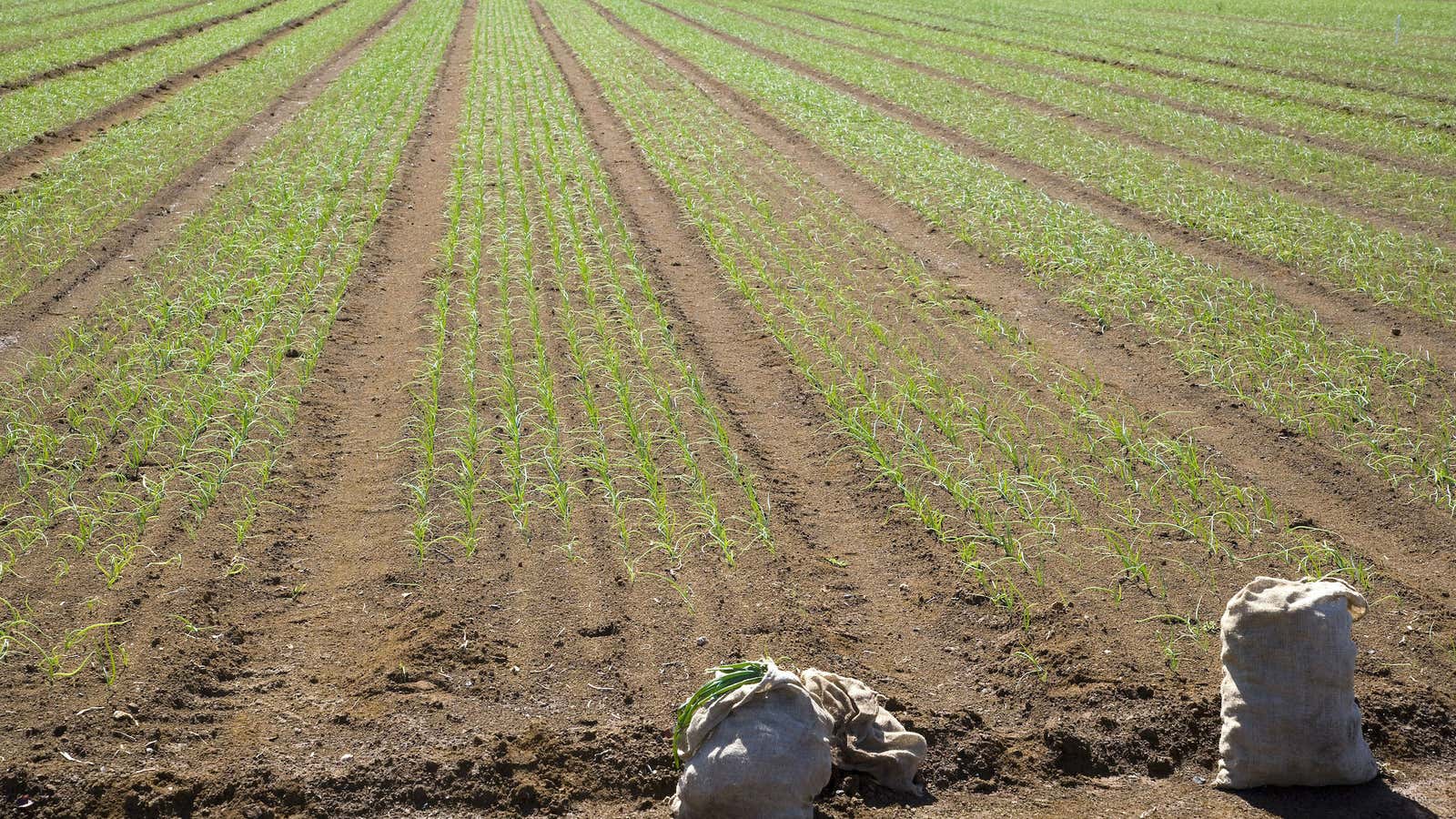New Zealand farmers and opposition leaders are up in arms over the purchase of 13,800 hectares (34,100 acres) of some of the country’s most valuable farmland to a Chinese conglomerate, Shanghai Pengxin. Officials revealed this week that a deal has been made to sell Lochinver Station on New Zealand’s North Island, valued at over $70 million, to the Chinese firm, pending approval by regulators in both countries.
Agricultural industry insiders, officials, and activists around the world have become anxious about what some say is a global land grab by Chinese firms who have already acquired farms in the United States, South America, Southeast Asia and beyond to supply China’s growing demand for food. New Zealand, the world’s largest dairy exporter of dairy produce, is a prime target. (Lochinver station raises sheep and cattle.)
An official from the New Zealand farmers association said the government hasn’t demonstrated what the benefit, if any, the deal would bring to locals.”We don’t have that much land. It’s quite a small country, therefore bigger countries have far more ability to buy a strategic land in New Zealand. The question is, are we selling the family silver?” Federated Farmers president William Rolleston said in an interview with Quartz.
Shanghai Pengxin already owns 8,000 hectares of farmland on the North Island of New Zealand, and has a 75% stake in Synlait Farms, which owns about 4,000 hectares of farmland in the country’s South Island. On its website, Shanghai Pengxin says the company controls “thousands of hectares of land in South America, Cambodia, and China” that are used for raising wheat, corn, soybeans, and sheep.
Ahead of a New Zealand parliamentary election next month, the deal has turned political, with officials from opposition parties claiming the government is “selling our country from under our future generations.” Economic development minister Steven Joyce called detractors from the Labour party ”xenophobic” during a television debate over the weekend.
China is home to 20% of the world’s population but just 9% of its farmable land, a proportion that urbanization and worsening soil and water pollution are making more uneven. According to a 2012 study by the International Institute for Sustainable Development, Chinese firms had invested in at least 8.3 million hectares of farmland in developing countries.
Last year, a firm associated with the Chinese military, Xinjiang Production and Construction Corps released a statement that it would be leasing 3 million hectares of Ukrainian farmland, but quickly retracted the claim and said it was only developing an irrigation system in exchange for favorable terms on crop imports from Ukraine.
In New Zealand, industry observers aren’t sure exactly how much of the country’s farmland is being bought by foreign firms. Prime minister John Key has said that less than 1% of the country’s approximately 15 million hectares of farmland is foreign-owned. But others have calculated the ratio is around 7%, or closer to 9% when forest land is included.
“The reality is that here, no one knows how much of our farmland or housing is foreign-owned,” Rolleston said.




